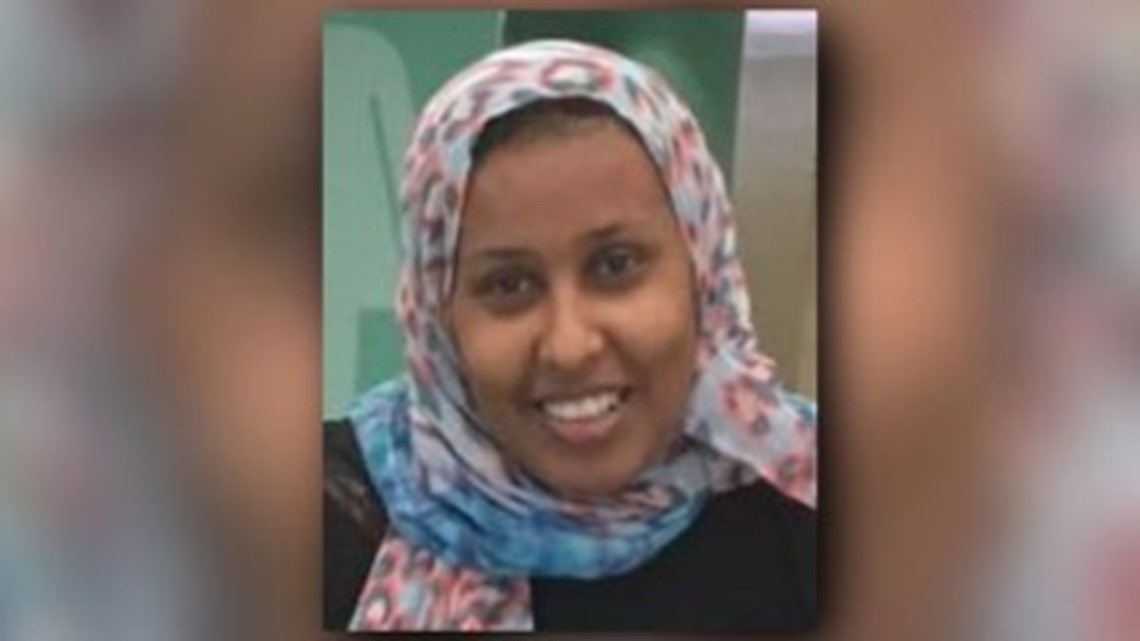 (ATLANTA, GA, 4/22/2019) – The Georgia chapter of the Council on American-Islamic Relations (CAIR-Georgia) and The Awad Law Firm today shared updates regarding the police shooting of Shukri Ali Said, including a preliminary autopsy report, a written description of her final moments, and the family’s reaction to learning that some of the involved officers have refused to submit to interviews with prosecutors.
(ATLANTA, GA, 4/22/2019) – The Georgia chapter of the Council on American-Islamic Relations (CAIR-Georgia) and The Awad Law Firm today shared updates regarding the police shooting of Shukri Ali Said, including a preliminary autopsy report, a written description of her final moments, and the family’s reaction to learning that some of the involved officers have refused to submit to interviews with prosecutors.
READ: Two Johns Creek Cops Involved In Muslim Woman’s Shooting Shun DA – AJC
WATCH: Family of Mentally Ill Woman Killed By Police Demand Answers One Year After Shooting – CBS46
“We thank the Fulton County District Attorney’s Office for pledging to conduct a thorough and independent investigation into the police shooting of Shukri Ali Said,” said Edward Ahmed Mitchell, Executive Director of CAIR-Georgia, and Ibrahim Awad of The Awad Law Firm. “We also appreciate the District Attorney’s efforts to keep the family updated on the progress of the investigation. However, the fact that two of the four officers involved in Shukri Ali Said’s death have refused to sit down for interviews with the prosecutor’s office is both concerning and telling.”
Mitchell and Awad added, “If these officers did nothing wrong, they should have nothing to hide and nothing to fear. We call upon these officers to immediately submit to interviews so that prosecutors can collect all of the facts and reach a just decision.”
Shukri Ali Said, a 36-year-old Somali-American Muslim woman who suffered from bouts of mental illness, was shot and killed by Johns Creek Police Department officers on April 28, 2018.
Last week, family members who were with Shukri on the day of the shooting met for the second time with Fulton County prosecutors who are investigating the shooting to determine whether the police officers involved violated any laws or policies.
During the interview, family members offered detailed information about the events leading up to the shooting, while prosecutors revealed that two of the four officers who were involved in the deadly encounter have retained criminal defense attorneys and refused to submit to interviews with the District Attorney’s office.
According to a Georgia Bureau of Invetigation document, Officers Phil Nguyen and Richard Gray shot Shukri, while Officers Ken Kennebrew and Derrick Wilson tased her. All four are now back on active duty with the Johns Creek Police Department.
SEE: GBI Document Identifying Officers
According to a medical report produced by the Fulton County Medical Examiner’s office, Shukri weighed only 127 pounds at the time of the autopsy, and had been shot five different times in the neck, head, and chest.
SEE: Preliminary Autopsy Report from Fulton Medical Examiner
Last year, CAIR-Georgia and The Awad Law Firm held a community town hall in Johns Creek at which they revealed details about what dash camera footage of Shukri’s final moments, according to family members who watched the video with permission from the Georgia Bureau of Investigation.
SEE: Town Hall on Police Shooting of Shukri Ali Said
According to what the family witnessed on the dash camera footage, officers first approached Shukri Ali Said as she was walking alone and away from them, not threatening or endangering anyone. The officers shouted commands at Shukri, fired a bean bag, and shot a taser, none of which stopped her from walking away.
Early in the video, Shukri shouted, “You shot me!” and pointed to her side, an apparent reference to being shot with the bean bag. At some point, she also shouted “God is greater” in Arabic.
Officers boxed Shukri in with police cars and their own bodies as she continued to walk away from them. At some point, she raised one of her arms in the direction of nearby officers. At least one officer then opened fire with a gun, striking Shukri two or three times in the chest. The family could not see what, if anything, Shukri was holding when she raised her arm toward the officers.
After being shot, Shukri grabbed her chest, fell to her knees, and planted her face and hands on the ground in the apparent position of prayer to God. She stayed in that position briefly before rising and stumbling off-camera.
At least one officer followed her out-of-view of the camera. More gunshots are heard, and an officer suddenly jumped backwards, into view of the camera. The shooting ends.
After the shooting, dash-cam video recorded audio of officers engaged in conversation among themselves. One of the officers was recorded saying that when he first saw Shukri, she was holding her passport and said she wanted to go home. He also said he did not see a knife at that point. One of the officers expressed concern that Shukri would run into a “jogger” if allowed to continue walking along the road.
During the post-shooting discussion, the officers also speculated about her ethnic identity. One suggested she was from Pakistan. Another identified her as black, at which point one of the officers said in mock surprise, “I didn’t know black people lived in Sugar Mills,” a reference to the wealthy neighborhood in which Shukri lived.
Based on the autopsy report, the family believes that Shukri had virtually no chance of survival.
CAIR is America’s largest Muslim civil liberties and advocacy organization. Its mission is to enhance understanding of Islam, protect civil rights, promote justice, and empower American Muslims.
La misión de CAIR es proteger las libertades civiles, mejorar la comprensión del Islam, promover la justicia, y empoderar a los musulmanes en los Estados Unidos.
END

